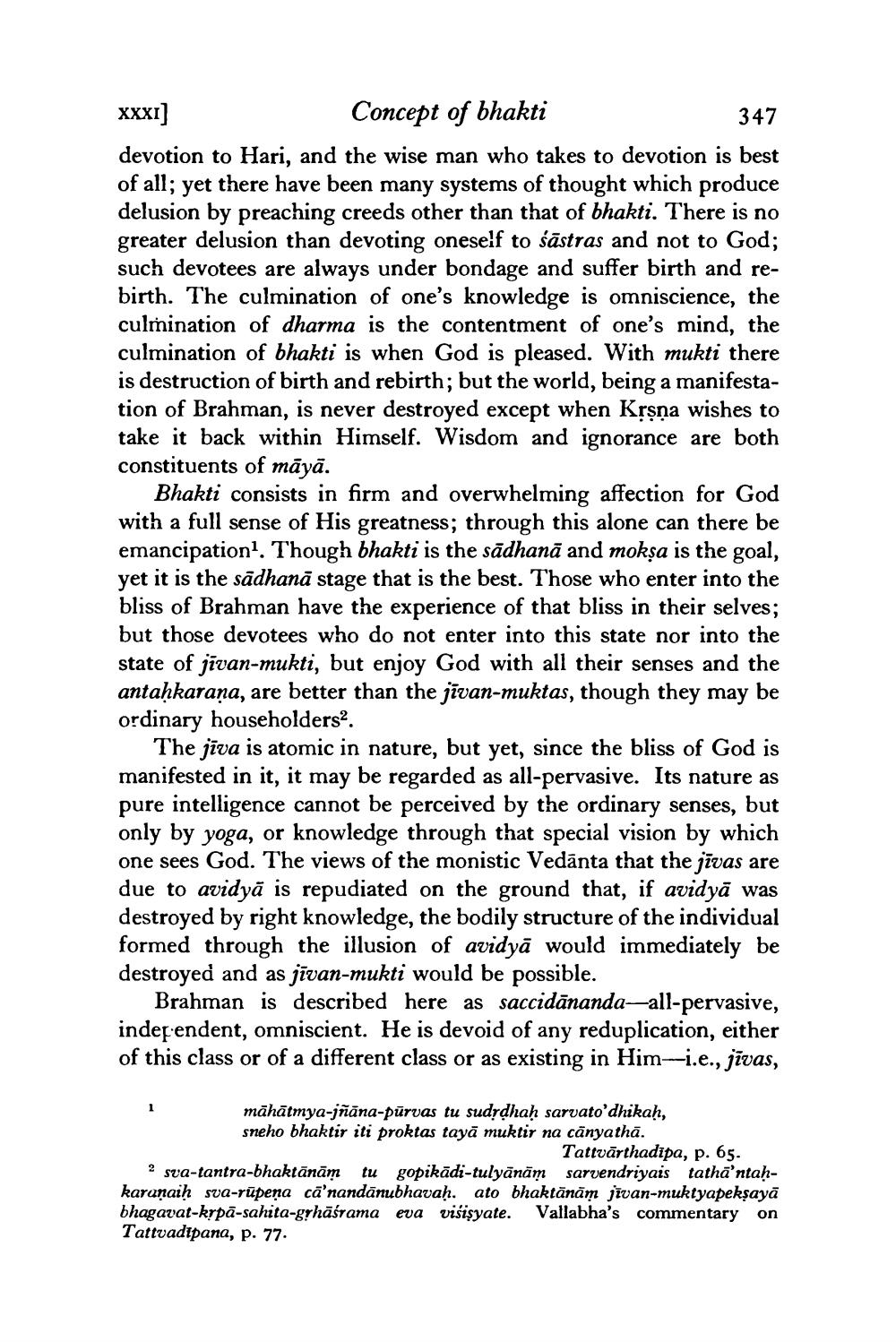________________
XXXI] Concept of bhakti
347 devotion to Hari, and the wise man who takes to devotion is best of all; yet there have been many systems of thought which produce delusion by preaching creeds other than that of bhakti. There is no greater delusion than devoting oneself to śāstras and not to God; such devotees are always under bondage and suffer birth and rebirth. The culmination of one's knowledge is omniscience, the culmination of dharma is the contentment of one's mind, the culmination of bhakti is when God is pleased. With mukti there is destruction of birth and rebirth; but the world, being a manifestation of Brahman, is never destroyed except when Krsna wishes to take it back within Himself. Wisdom and ignorance are both constituents of māyā.
Bhakti consists in firm and overwhelming affection for God with a full sense of His greatness; through this alone can there be emancipation?. Though bhakti is the sādhanā and moksa is the goal. yet it is the sādhanā stage that is the best. Those who enter into the bliss of Brahman have the experience of that bliss in their selves; but those devotees who do not enter into this state nor into the state of jīvan-mukti, but enjoy God with all their senses and the antaḥkaraņa, are better than the jīvan-muktas, though they may be ordinary householders.
The jīva is atomic in nature, but yet, since the bliss of God is manifested in it, it may be regarded as all-pervasive. Its nature as pure intelligence cannot be perceived by the ordinary senses, but only by yoga, or knowledge through that special vision by which one sees God. The views of the monistic Vedānta that the jīvas are due to avidyā is repudiated on the ground that, if avidyā was destroyed by right knowledge, the bodily structure of the individual formed through the illusion of avidyā would immediately be destroyed and as jīvan-mukti would be possible.
Brahman is described here as saccidānanda-all-pervasive, independent, omniscient. He is devoid of any reduplication, either of this class or of a different class or as existing in Him-i.e., jīvas,
māhātmya-jñāna-pūrvas tu sudrdhaḥ sarvato'dhikah, sneho bhaktir iti proktas tayā muktir na canyathā.
Tattvārthadipa, p. 65. 2 sva-tantra-bhaktānām tu gopikādi-tulyānām sarvendriyais tathā'ntahkaranaih sva-rūpeṇa cā'nandānubhavaḥ. ato bhaktānām jīvan-muktyapekṣayā bhagavat-krpā-sahita-gyhāśrama eva visişyate. Vallabha's commentary on Tattvadipana, p. 77.




